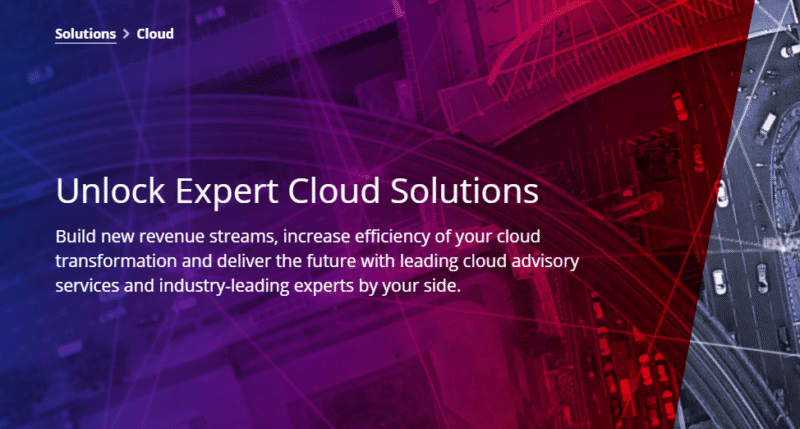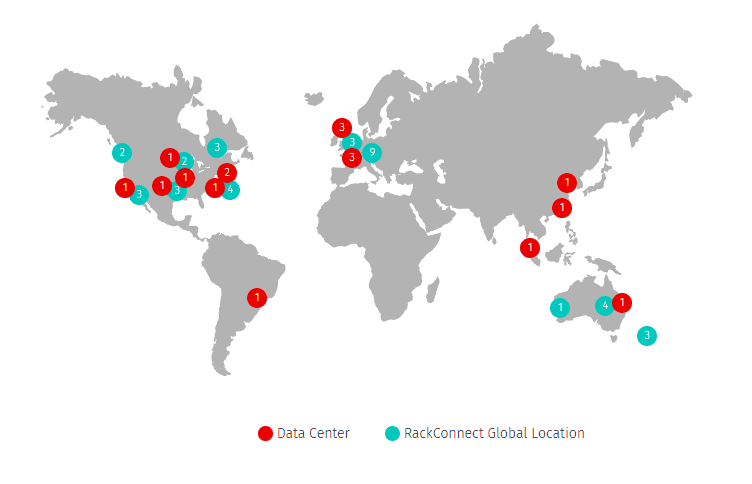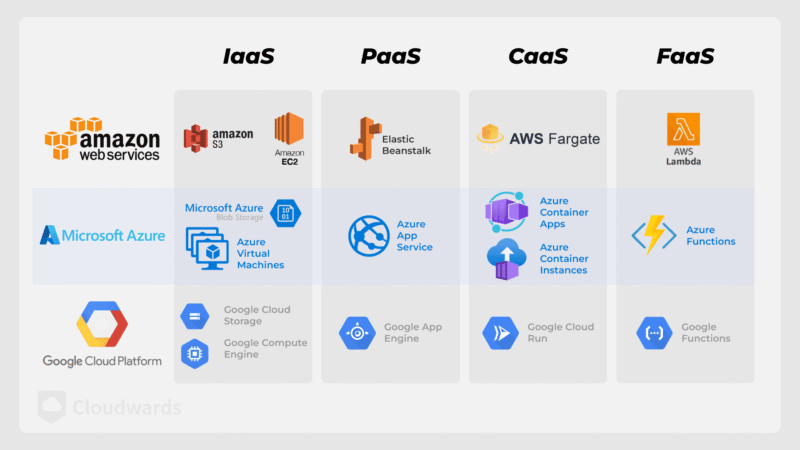What Is Rackspace Cloud Computing & Hosting?
You can overcome internal barriers to obtaining expertise for cloud computing operations by engaging third-party cloud managers such as Rackspace. Read on as we discuss what Rackspace does while highlighting its features and explaining how it compares to Amazon Web Services (AWS).
Navigating cloud environments requires expertise, which you can gain by employing skilled professionals or upskilling your staff. However, the high costs, workplace cultural resistance and high employee turnover associated with these options may be impractical. This is where managed cloud service providers like Rackspace can be useful.
With Rackspace, you pay for experts to set up, deliver and manage your workloads in the cloud. However, due to various financial challenges and an infamous malware attack in 2022, Rackspace has struggled to deliver its services at the expected standards of the cloud computing industry. Read on as we dive into the details of Rackspace’s features and functionality.
What Is Rackspace?
Rackspace is a cloud service provider that streamlines cloud operations with its managed services. It provides ready-to-use solutions for cloud adoption, migration, optimization, application modernization, operations and security strategies. This reduces the technical burden on users and businesses, allowing them to focus on the non-technical aspects of their operations.
You can think of Rackspace as a solutions provider — its core role is to design, plan and implement solutions based on your requests, business needs and company goals. At the same time, Rackspace also grants you on-demand access to its solutions architects and other cloud experts.

What Does Rackspace Do?
Rackspace offers managed hosting services in single-tenant (bare metal) and multi-tenant (virtual server) environments. It builds its services on its own bare metals and also uses infrastructure from cloud providers such as AWS, Microsoft Azure and Google Cloud.
Furthermore, it offers a team of experts to handle workload operations that are hosted on its services, including monitoring, security and optimization.
Besides managed services, Rackspace also assists with cloud adoption and migration. It can help you plan and implement your move to the cloud, especially if this is new terrain for you or your team. That aside, if you want to refactor your application and data to be more efficient and compatible with modern systems, Rackspace’s experts are there to help.
The platform also offers a framework called the Foundry for AI by Rackspace (FAIR), which allows you to build AI-integrated solutions. In addition, it takes a rounded approach to cybersecurity and resilience, offering security strategies, disaster recovery (recovery-as-code), and detection and response services.
Rackspace Hosting Features
Rackspace removes the complexity from cloud operations, doing the heavy lifting for you. To achieve this, it offers on-demand experts, multiple tenancy options, comprehensive security and several deployment options.
- On-demand experts: Rackspace’s selling point is its 24/7 on-demand access to experts and support, which it dubs “fanatical experience.” Besides the unfettered access to experts, it offers multiple access points through phone, web chat and tickets, along with rich documentation.
- Multiple tenancy options: Rackspace hosts workloads in multi-tenant and single-tenant environments. Hence, you can have your workloads on dedicated servers through its managed infrastructure services, which are available in data centers across North America, Western Europe and Asia.
- Comprehensive security: From rapid recovery, vulnerability mitigation and security planning, to application, network and data protection, Rackspace’s cybersecurity package offers valuable services and technologies. You also get distributed denial-of-service (DDoS) protection, firewalls and application delivery controllers.
- Several deployment options: Rackspace supports public, private, hybrid and multi-cloud deployment models. This comes in handy if you want to extend your existing infrastructure in a public or private cloud.

Rackspace vs AWS
AWS is primarily a do-it-yourself (DIY) platform, while Rackspace is a done-for-you (DFY) solution. You work directly on AWS’ cloud servers, whereas Rackspace handles the technical bits for you and minimizes your contact with the underlying technology. Server configuration is more complex with AWS’ DIY approach, but Rackspace simplifies this process for you.
AWS offers a broader range of services than Rackspace, and its data centers are spread across more locations. Furthermore, Rackspace runs some of its services on public cloud platforms like AWS, Microsoft Azure and Google Cloud. This raises the odds of encountering performance variations and security risks, but it may also lead to cost savings.

Rackspace charges for your underlying resource usage and its expert management. With AWS, you pay only for the resources that you use. Therefore, Rackspace generally costs more than AWS. However, if you factor in the price of its expertise and additional services — which AWS bills for separately — the comparison becomes more balanced.
Final Thoughts
Rackspace offers cloud expertise as a service, delivering solutions and managing cloud infrastructure while users focus on other operations. Although responsive and accessible support is its core selling point, the quality of its support has been below standard for a while.
Have you ever used Rackspace or a similar service? If yes, what are Rackspace’s upsides compared to managed services from cloud providers like AWS? Share your thoughts with us below. Thank you for reading.
FAQ: Rackspace Technology
Rackspace was privatized and acquired by Apollo Global Management in 2016 before going public again in 2022. These transitions saw a shift from support-focused operations to profit maximization. Unfortunately, this led to a drop in the quality of key features, especially its support.
Yes, Rackspace offers email service. It offers a standard mailbox and add-ons such as storage for cloud files, Microsoft Office compatibility and mobile sync.
Rackspace’s services include cloud adoption and migration, AI integration, data and application management, customer-relationship management solutions, email and recovery services, and on-demand access to experts.


